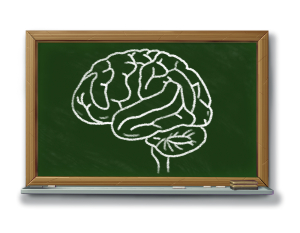 To be mindful, to be present, to not judge our students, is all a part of our jobs as educators. Shouldn’t a student find sanctuary in the classroom and not shame? Over the years I have been driven to temporary madness by some of my students, sure, this is true. Yet, (partially because of my minor in psychology) I have always tried to not pass judgment, and to look for the causes behind the commotion.
To be mindful, to be present, to not judge our students, is all a part of our jobs as educators. Shouldn’t a student find sanctuary in the classroom and not shame? Over the years I have been driven to temporary madness by some of my students, sure, this is true. Yet, (partially because of my minor in psychology) I have always tried to not pass judgment, and to look for the causes behind the commotion.
Daniel J. Siegel, M.D., author of The Whole-Brain Child, and Parenting from the Inside Out, has written a new book. It not only explains the causes of “bad behavior,” but helps us teachers, parents, and anyone who interacts with adolescents on a daily basis both understand, empathize with, and learn from people between the ages twelve and twenty-four. The age span of adolescence is what first caught my interest. “You’re telling me I was still a kid after I graduated college?” Yup. “You’re telling me some of the behaviors of my early twenties might have been fueled by the same motivations that guide my seventh graders to act out?” Indeed. It’s all in Siegel’s fascinating new book Brainstorm, and I can’t speak highly enough about it.
Knowledge is power, and knowing your audience, or your clientele, is key to improving your classroom. Siegel teaches that there are four features pertaining to the adolescent’s brain development that we should become acquainted with. Novelty Seeking, Social Engagement, Increased Emotional Intensity, and Creative Exploration are behaviors to commit to memory. (Check out this YouTube video to hear the author speaking about his work.)
I’d like to discuss the term Novelty Seeking. There is an “increased drive for rewards in the circuits of the adolescent brain that creates the inner motivation to try something new and feel life more fully, creating more engagement in life.”
How many times have I seen twelve-year olds dare each other, then shove a half a fist of wasabi, or even cinnamon into their mouths? Often times this is labeled as “impulse control” problem. There is no pause, no stopping to think, when it comes to novelty seeking. Imagine now if this impulsivity could be refined, even harnessed. Wouldn’t novelty simply become adventure, and a once “impulse control problem” turn into a “kid who seeks out challenges?” If novelty seeking could be harnessed, it seems to me like it would become an attribute of a great designer, an innovator, and someone who could offer gifts to the world.
The last thing I want to be as an educator is an entertainer. In this day and age of electronic stimulation and immediate gratification, we want our kids to learn how to sit still and demonstrate scholarly endurance. We want them to work and their adolescent brains demand something new and stimulating. This is where the educators have to be novel. How about offering an option in how they present their work? How about making innovation a requirement? For example… the persuasive essay has been written, now persuade your mom, or your favorite cartoon character, or even an alien from another planet. Leave parts of your rubrics blank, and offer ungraded assignments where rewards come in different forms. This last suggestion may sound scary for some of you, but how about asking your students to surprise you? Give them some parameters, maybe it’s a time limit, and simply ask them to do what the assignment requires, only in a different way. Light up that novelty seeking impulse in your students and in yourself.
Thank you for reading and for sharing.
Nicholas Philliou, 7th grade humanities teacher in Durango, Colorado
Image Credit: Lightspring / Shutterstock.com













Leave a Reply